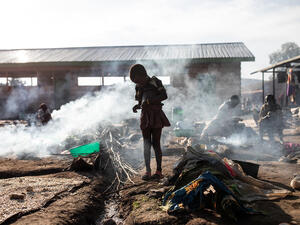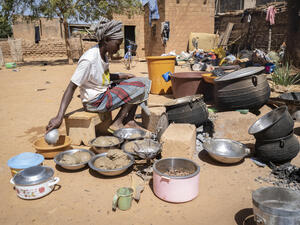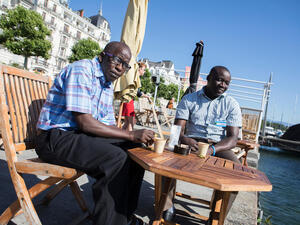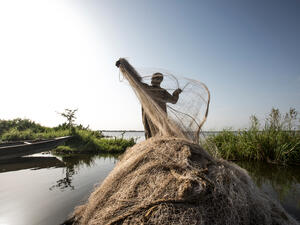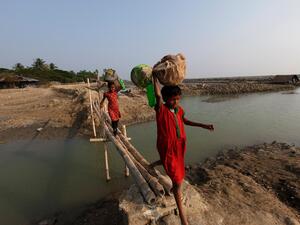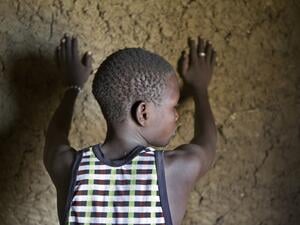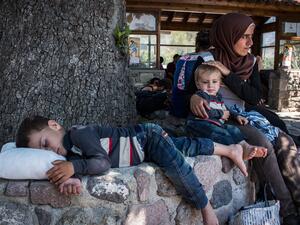Q&A: UN's top man in Congo sees silver lining amid humanitarian crisis
Q&A: UN's top man in Congo sees silver lining amid humanitarian crisis
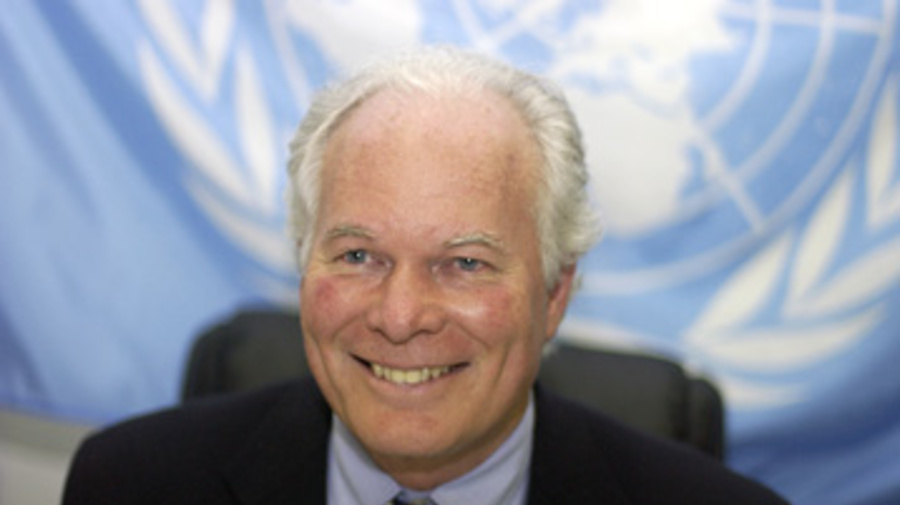
The UN Secretary-General's Deputy Special Representative in the Democratic Republic of the Congo, Ross Mountain.
KINSHASA, Democratic Republic of the Congo, August 15 (UNHCR) - From Afghanistan to Lebanon, East Timor and Iraq, Ross Mountain has led UN operations in numerous hotspots and humanitarian emergencies. The New Zealander recently spoke to UNHCR's External Relations Officer in Kinshasa, Francesca Fontanini, about the challenges of his current role as the UN Secretary-General's Deputy Special Representative in the Democratic Republic of the Congo (DRC). Excerpts from the interview:
What is the current situation in the DRC, and is it getting the attention it deserves?
Unfortunately the humanitarian situation in DRC is still one of the worst in the world, with 1,500 preventable deaths a day. An International Rescue Committee (IRC) report says 45,000 people are dying every month here largely from treatable causes, a total of 5.4 million dead over the past decade. This death toll surpasses any conflict since World War II and is equivalent to having the Indian Ocean tsunami every six months. The monthly mortality rate is 40 percent higher than the average for sub-Saharan Africa - one in five children dies before reaching the age of five.
There is some positive news. Fewer people are dying as a direct result of conflict. The electoral process in 2006 was a major success and an historic event for the DR Congo. By massively participating in the different polls, the Congolese population demonstrated their desire for peace and their commitment to democracy. The country now has an elected Government which is responsible for the reconstruction of the country and also deals with humanitarian issues. DRC is also finally attracting more donor support, but the full needs of the DRC are still not reflected. The international media gives wide coverage to an area of serious concern to us, sexual and gender based violence. Unfortunately, relatively little space is given to stories that document the considerable progress the country is making.
What are the UN's main concerns in terms of humanitarian needs and reforms? Are these needs being met?
In a country where so many things are broken, there are many priorities. Some of the top priorities are the humanitarian situation, governance, and security sector reform. Of great concern are the military elements that are untrained, poorly equipped, often unpaid or poorly paid and molesting the population rather than protect it. The challenge of reforming and professionalizing the national army and dealing with a plethora of militias is daunting. So too is establishing stability, peace and increasing humanitarian access in the east. Successful army reform is key to the country's future stability and sustainable development.
Over the last years the humanitarian community has responded positively to reform and put in place new approaches. As a result more resources have been made available to better meet needs. In the DRC there is a need to put in place not only humanitarian programmes, but also reconstruction and development programmes. More needs to be done in these sectors. The death toll speaks for itself. There is a need for the UN, NGOs and the Government to try to meet immediate needs. We can't reconstruct a country on dead bodies.
The 2008 Humanitarian Action Plan Mid-Term-Review assessed an increase of humanitarian needs from $575 million defined at the beginning of the year to $749 million. This increase is amongst others a result of newly emerging nutrition crises in several provinces, the steep rise of food and fuel process, outbreaks of cholera and other epidemics and new opportunities to address the problem of sexual violence. The 2008 HAP focuses on five substantial areas - mortality, nutrition, protection, assistance to internally displaced people (IDPs) and support of returnees.
Has the Goma peace conference paved the way for the return of the 350,000 Congolese refugees and over one million internally displaced?
A number of recent agreements have been signed, such as the Goma Actes D'Engagements and the Nairobi Communiqué. These are the results of bringing key actors together to discuss solutions for the lingering problems which are the root cause of conflicts in the east. A range of national and foreign militias continue to fight in the Kivus, where we have an IDP population of more than 1 million. Implementation of the peace and stabilisation process is complicated and slow. Although some progress has been made, the population in these areas, especially the IDPs, have yet to see sufficient progress to allow them to return. For this reason, the international community, in particular the UN, the US, the EU and the African Union are helping national authorities to address the obstacles to peace.
MONUC has deployed over 90 percent of its 17,000 peacekeepers in the east. They are working closely with the humanitarian community to protect the population there. Re-establishing state authority and providing support through the Humanitarian Action Plan for the return and reintegration of IDPs are key elements towards the recovery and development of the DRC.
Increased stability, combined with other efforts, will allow IDPs and refugees to return. Despite the fact that last year the number of IDPs increased, progress has been made outside the Kivus - around one million IDPs have returned in the Ituri region since 2004 and 5,000 refugees have gone back home to Katanga this year alone.
What is UNHCR's role in the DRC?
Since 2004, UNHCR has repatriated more than 150,000 refugees across the country. In the context of the Amani Programme, significant progress has been made by UNHCR in organizing the Tripartite Working Group with Rwanda, Uganda, with Burundi soon to join. Beyond the traditional role dealing with refugees, UNHCR has played a major role leading the protection cluster, which is a major priority for the UN family in the DRC. UNHCR also manages 15 camps for IDPs in North Kivu. This requires both attention at a high level and active work in key regions in the east together with MONUC (UN Mission in the DRC), other UN agencies, NGOs and the Government. UNHCR and UNDP jointly lead the return and reintegration cluster with UNDP with the objective to facilitate the reinsertion of those IDPs in their home communities.


